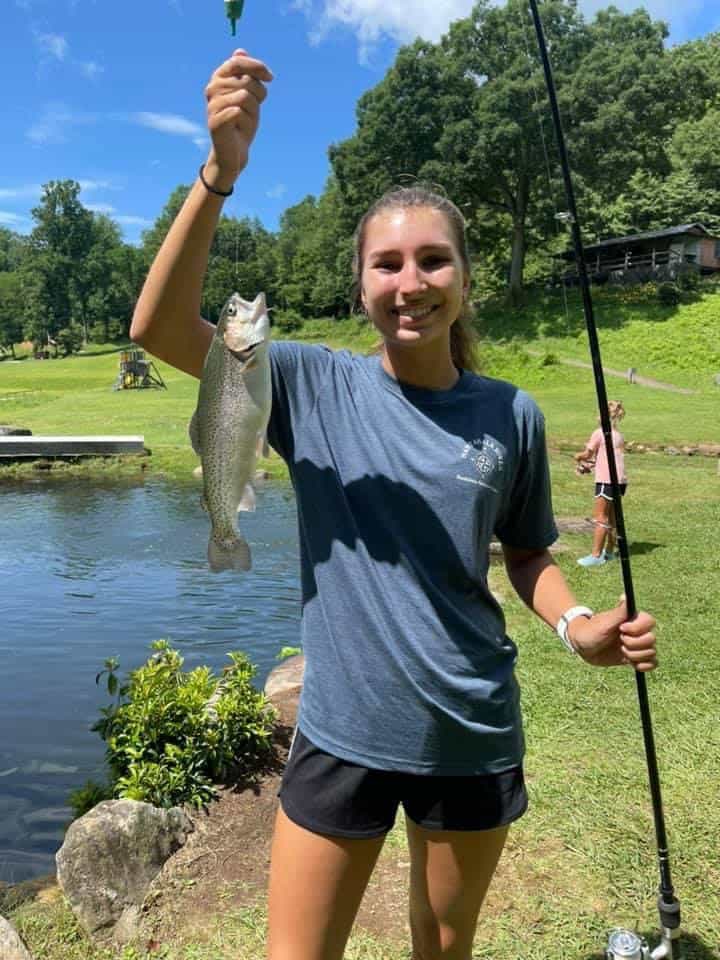Tips From A Teacher: 14 Ways to Keep Kids Learning Over the Summer & Still Have Fun
Whether summer is just starting or in full swing, parents are trying to make sure kids are having fun but still learning. We asked a teacher for her tips on how to keep kids learning over the summer. This post is brought to you by Jennifer Adriani, who is entering into her 23rd year of teaching. She is also a mom of two.
One of the most popular questions I get at this time of the year is “What should my child do over the summer?”
My answer is always the same: Have fun and with that add a little enrichment to keep their brain growing and stimulated. There are workbooks out there to help bridge the summer gap, but there are better ways to keep you child sharp and have a memorable summer.
Pro Teacher/Parent Tip: If you don’t have screen time limits, I would set some boundaries and limits for the summer.
14 Ways to Keep Kids Learning and Having Fun Over the Summer
Some of the best ways to enrich you child’s learning and stimulate their brain is by doing one or more of the following activities. Let them pick!
Read: Yes, establish this as a daily norm. Reading is everywhere, so be creative. Listen to books through audible, through your local library, or even you tube. YouTube has famous guest readers that will read books aloud. Use your local library, books are FREE and abundant.
If your child is a reluctant reader, local library, book stores, and sports teams usually offer incentives to read over the summer. Check around and see if you can find a program that helps motivate your child to read and take that pressure off you!
Learn to play a music instrument: You can find an instructor or use online computer-based instruction. Don’t have an instrument, no problem at all. You can seek out a used keyboard-many times families have these sitting around collecting dust and are happy for you to take it off their hands. Or a Ukulele is a fairly inexpensive instrument.
Learn to code: Computer programming is a skill that will defiantly come in handy.
Learn a second language: You can join an online class or use a computer program. There are also free apps that the kids can download to their phones, we have used Duolingo in the past.
Budgeting: This is a skill that all children can learn and use.
Have your child plan a meal a week on a budget and even have them help prepare the meal. If your child is older they can help with the grocery budget.
Back to school shopping: Have your child find the best price on school supplies or their new shoes.
High schoolers should make spreadsheets that include costs like haircuts, insurance, cell phone cost, and other incidental expenses to begin to get and idea of what things cost.
Visit a museum: There are so many different types of museums, find one that interests your family. There are art museums, history museums, science museums, and car museums. Find small ones or large ones.
Most museums are full of information that needs to be read, this counts as reading! Timelines that are often found throughout museums are really great for children to understand events.
If you don’t have a museum in your local area find an online or virtual museum you can visit.
Play Games: Make this a no technology zone. Work on those soft skills like having a conversation and connecting with each other. Board games build strategy and problem-solving skills. They work on skills like winning and loosing and how to be good at both.
Puzzles: This is definitely one of my favorites! Find a puzzle everyone loves and sit around and work on it together. This is a great rainy-day activity. We tend to put out a puzzle and work on it throughout the week. We like to trade puzzles with friends or give them away when we finish to make room for the next challenge.
Get Crafty: Save some boxes for a rainy day and have your kids creative something amazing. Put out some markers, scissors and some other craft supplies and allow their minds to run free.
Go to a local, state, county or national park or beach: Let your child’s interests guide the trip.
Younger children take a sensory walk or a scavenger hunt looking for certain colors or shapes or even specific items. (you can find these online, you just need to print and go)
Older children can work on identifying plants and animals they see. Bring a plant or animals identification guide with you or we like to photograph flowers, butterflies, mushrooms, insects and anything else we can’t name and then research it when we get home.
Watch Documentaries: I like to make this a weekly movie night. It could be historical or scientific the possibilities are endless.
Get Outside: SPEND TIME PLAYING. Some simple ideas for getting the kids (and you!) outside are:
- Create an obstacle course and time them going through it. See if they can make improvements as they practice.
- Make a hop scotch game and play.
- Use side walk chalk to draw a course runway for you little one to ride their bike or scooter one.
- Write a positive message on your driveway for your delivery team or neighbors to read.
- Play in the sprinklers or go to a splash pad.
- Go fishing.
Plant a Garden: Take the kids with you to the nursery and let them pick out what plants and seeds they would like to plant. Don’t have a green thumb? Here are some tips for gardening beginners.
















